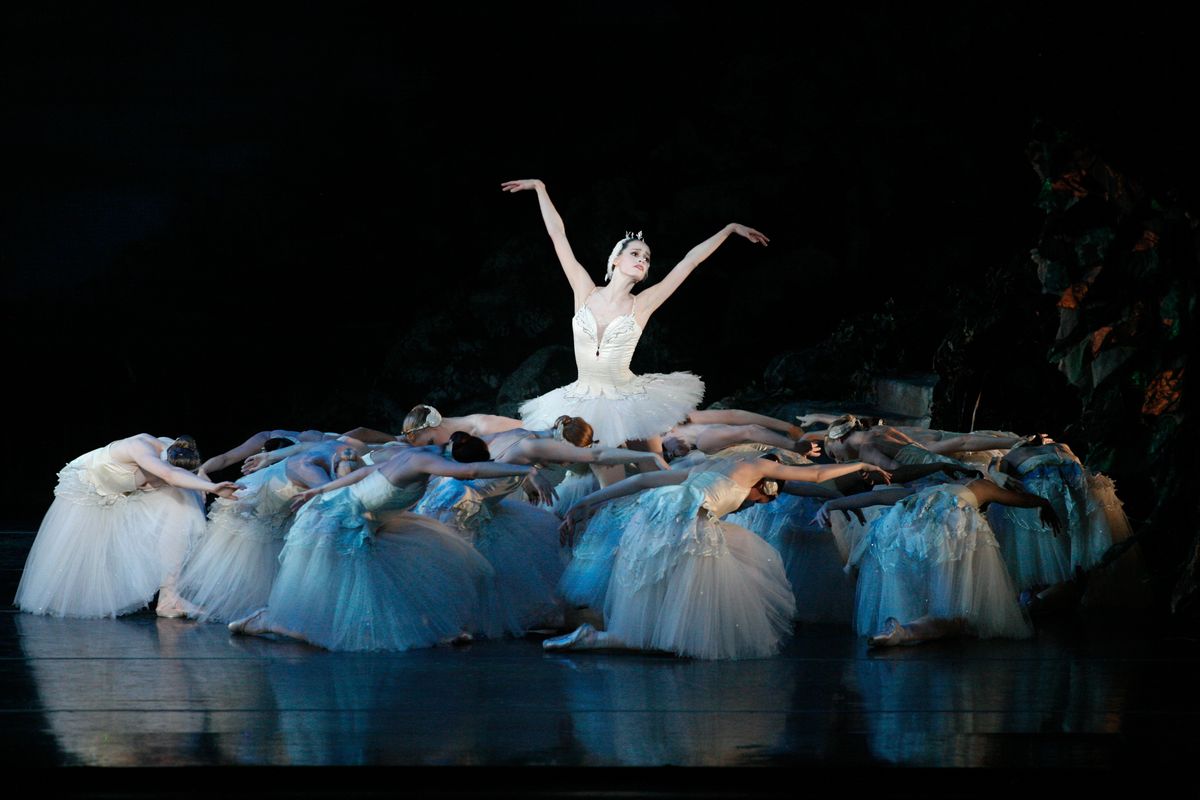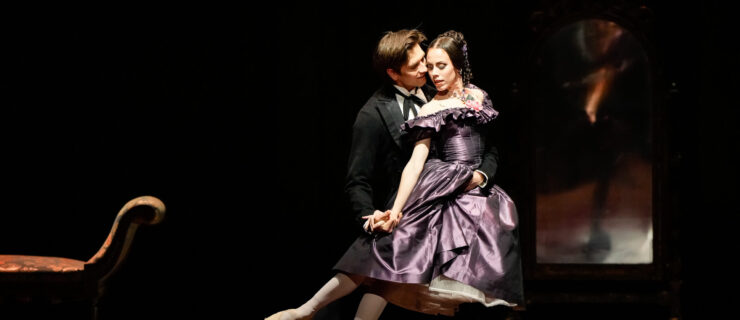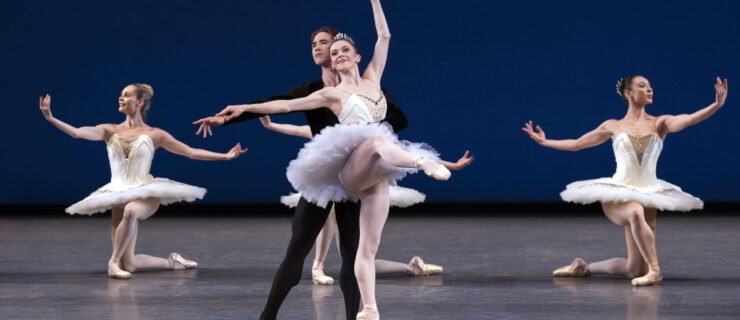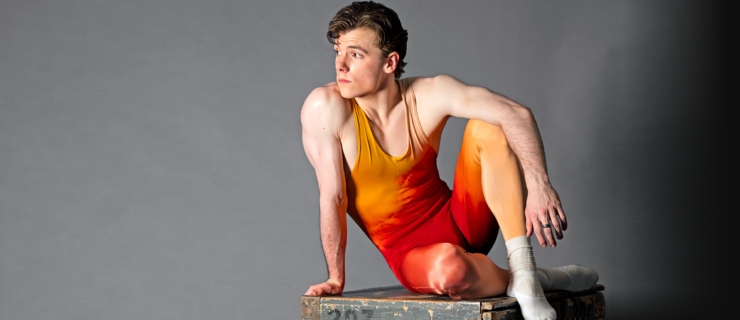Hindsight is 20/20: Five Leading Dancers' Honest Career Advice
This story originally appeared in the June/July 2015 issue of Pointe.
At the beginning of your professional career, everything feels like a mystery. If only our older, wiser selves could divulge what mistakes and mentalities to avoid. Here, five seasoned, leading dancers share what they wish they had known at the start of their careers, and offer sage advice for those on the threshold of their professional lives.
Maria Kowroski: Principal, New York City Ballet

Kowroski in “Diamonds.” Paul Kolnik, Courtesy NYCB.
I had to learn to stay focused on myself, and not let other people’s successes and opportunities interfere with my own life. Being too focused on other people can give your career a negative twist. Everyone has his or her own path. I really struggled with perfectionism, too. If I made mistakes back then, I would get angry. That doesn’t do you any good. Now I know if I make some mistakes, but the feeling was there, it can still be a good performance. Once I let perfectionism go, I danced much better and enjoyed performing more.
Ballet can be too all-consuming. Expose yourself to a wide sector of the arts. I wish I had done more of that as a young dancer. Go to opera, musicals, plays, other art forms besides ballet—that can really enhance your artistry. You might even see someone performing at a high level make a mistake. It’s important to realize we are all human, and mistakes are part of that. This is a live art form and anything can happen. It’s okay to mess up. Don’t beat yourself up over it. We will always have time to practice and work on ourselves.
Ashley Murphy: Dance Theatre of Harlem

Murphy with Samuel Wilson in Contested Space. Rachel Neville, Courtesy DTH.
I spent too much time looking in the mirror and judging myself, which comes from insecurity. I had this idea of what I was supposed to look like. Now I understand that everyone’s body works differently, and that movement often feels better than it looks. Part of being in a company is about playing off our strengths and weaknesses.
I could have benefited from knowing more about cross-training, too. I had to wait to get injured to figure that out. Now I alternate between swimming, the treadmill and the elliptical, along with lots of core work, and I feel so much stronger. In the early part of my career, I also let others push me too hard. Our bodies tell us when they need to rest and we had better listen.
As for those heading out on a career: Learn to strive, but within reason. Be true to yourself, and encourage others. Don’t bother with the petty stuff—it isn’t worth it. Your company is like a family; these are the people you depend on. Don’t lose the connection with those around you.
Amy Aldridge: Principal, Pennsylvania Ballet

Aldrige in In the Middle Somewhat Elevated. Alexander Iziliaev, Courtesy PAB.
First, you need to be 100 percent behind the decision to go for a career, and not contemplate whether it’s something you should be doing. You need total confidence.
That said, I wish I had known how to pace myself better. Sometimes less is more, especially when approaching rehearsal. I was working too hard, and it wasn’t necessary—I punched everything with such high energy that by the end of the day I was exhausted. Using less energy actually made the movement more appealing. Throughout my career, I have had to learn to dance with a little less, a little softer, a little under. I had to work hard to find balance both inside and outside of the studio: diet and nutrition, my energy, my emotions. I tried to build myself too quickly. You don’t have to throw yourself into everything.
Also, you should be totally prepared when doing a new ballet or meeting a new choreographer. Do your homework. I research their work, study their ideas, look at what they have done before and who danced in the original work. I want to know where their head is at.
Simon Ball: Principal, Houston Ballet

Ball in Apollo. Amitava Sarkar, Courtesy HB.
I was way too impatient as a dancer. I wanted to jump higher, do more turns and so on. I should have been more patient so that I could develop my placement. When I broke my ankle nine years ago, I realized I had been doing things incorrectly for a long time. I had to go back and correct many of the inadequacies in my technique. I have much better hip placement now.
I also needed to learn to be respectful of older dancers. You have to modulate respect and ambition. I got caught up in “back of the room” chatter, be it talking about other dancers or jealousy. That can be toxic. Luckily, I snapped right out of it when I realized it was a waste of time.
Dancers need to be on simmer all the time, be on the ready. Run things through your head. A big break might happen if someone is injured, so you need to be totally prepared. There’s no such thing as being too prepared—you are always on the brink of being recognized.
Natalia Magnicaballi: Ballet Arizona; principal, The Suzanne Farrell Ballet

Magnicaballi with Astrit Zejnati in Swan Lake. Alexander Iziliaev, Courtesy Ballet Arizona.
If I have to think of something that surprised me the most, I could say the “politics” inside companies when I came to America to audition. I entered company life when I was 15 years old in Argentina and went through the ranks very quickly. I think I was very naïve, thinking that being a great dancer was enough. I didn’t understand that there were other factors, like a company’s budget, who you know, height requirements, egos—things beyond your control—that can get in the way. I think it’s like that in any other profession, but when you start so young, it’s kind of surprising and hard to understand at first. Knowing that now, I wish I had not been so hard on myself. Some things are not meant to be.
I always followed my instincts. As a young dancer you have to ask yourself what kind of ballets you’d like to dance. And figure out what is more important for you: to go through the ranks in a big company or be part of a medium-size company that doesn’t have ranks but gives you more opportunities to dance.





